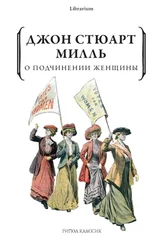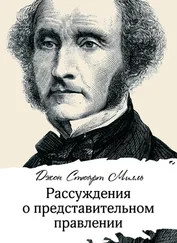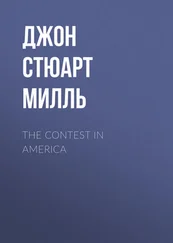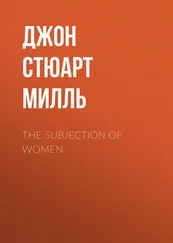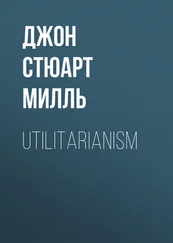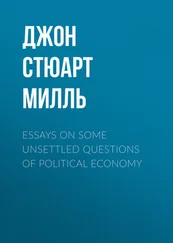Джон Милль - Autobiography
Здесь есть возможность читать онлайн «Джон Милль - Autobiography» — ознакомительный отрывок электронной книги совершенно бесплатно, а после прочтения отрывка купить полную версию. В некоторых случаях можно слушать аудио, скачать через торрент в формате fb2 и присутствует краткое содержание. Жанр: Философия, literature_19, foreign_antique, foreign_prose, на английском языке. Описание произведения, (предисловие) а так же отзывы посетителей доступны на портале библиотеки ЛибКат.
- Название:Autobiography
- Автор:
- Жанр:
- Год:неизвестен
- ISBN:нет данных
- Рейтинг книги:4 / 5. Голосов: 1
-
Избранное:Добавить в избранное
- Отзывы:
-
Ваша оценка:
- 80
- 1
- 2
- 3
- 4
- 5
Autobiography: краткое содержание, описание и аннотация
Предлагаем к чтению аннотацию, описание, краткое содержание или предисловие (зависит от того, что написал сам автор книги «Autobiography»). Если вы не нашли необходимую информацию о книге — напишите в комментариях, мы постараемся отыскать её.
Autobiography — читать онлайн ознакомительный отрывок
Ниже представлен текст книги, разбитый по страницам. Система сохранения места последней прочитанной страницы, позволяет с удобством читать онлайн бесплатно книгу «Autobiography», без необходимости каждый раз заново искать на чём Вы остановились. Поставьте закладку, и сможете в любой момент перейти на страницу, на которой закончили чтение.
Интервал:
Закладка:
It would have been wholly inconsistent with my father's ideas of duty, to allow me to acquire impressions contrary to his convictions and feelings respecting religion: and he impressed upon me from the first, that the manner in which the world came into existence was a subject on which nothing was known: that the question, "Who made me?" cannot be answered, because we have no experience or authentic information from which to answer it; and that any answer only throws the difficulty a step further back, since the question immediately presents itself, "Who made God?" He, at the same time, took care that I should be acquainted with what had been thought by mankind on these impenetrable problems. I have mentioned at how early an age he made me a reader of ecclesiastical history; and he taught me to take the strongest interest in the Reformation, as the great and decisive contest against priestly tyranny for liberty of thought.
I am thus one of the very few examples, in this country, of one who has not thrown off religious belief, but never had it: I grew up in a negative state with regard to it. I looked upon the modern exactly as I did upon the ancient religion, as something which in no way concerned me. It did not seem to me more strange that English people should believe what I did not, than that the men I read of in Herodotus should have done so. History had made the variety of opinions among mankind a fact familiar to me, and this was but a prolongation of that fact. This point in my early education had, however, incidentally one bad consequence deserving notice. In giving me an opinion contrary to that of the world, my father thought it necessary to give it as one which could not prudently be avowed to the world. This lesson of keeping my thoughts to myself, at that early age, was attended with some moral disadvantages; though my limited intercourse with strangers, especially such as were likely to speak to me on religion, prevented me from being placed in the alternative of avowal or hypocrisy. I remember two occasions in my boyhood, on which I felt myself in this alternative, and in both cases I avowed my disbelief and defended it. My opponents were boys, considerably older than myself: one of them I certainly staggered at the time, but the subject was never renewed between us: the other who was surprised and somewhat shocked, did his best to convince me for some time, without effect.
The great advance in liberty of discussion, which is one of the most important differences between the present time and that of my childhood, has greatly altered the moralities of this question; and I think that few men of my father's intellect and public spirit, holding with such intensity of moral conviction as he did, unpopular opinions on religion, or on any other of the great subjects of thought, would now either practise or inculcate the withholding of them from the world, unless in the cases, becoming fewer every day, in which frankness on these subjects would either risk the loss of means of subsistence, or would amount to exclusion from some sphere of usefulness peculiarly suitable to the capacities of the individual. On religion in particular the time appears to me to have come when it is the duty of all who, being qualified in point of knowledge, have on mature consideration satisfied themselves that the current opinions are not only false but hurtful, to make their dissent known; at least, if they are among those whose station or reputation gives their opinion a chance of being attended to. Such an avowal would put an end, at once and for ever, to the vulgar prejudice, that what is called, very improperly, unbelief, is connected with any bad qualities either of mind or heart. The world would be astonished if it knew how great a proportion of its brightest ornaments – of those most distinguished even in popular estimation for wisdom and virtue – are complete sceptics in religion; many of them refraining from avowal, less from personal considerations than from a conscientious, though now in my opinion a most mistaken, apprehension, lest by speaking out what would tend to weaken existing beliefs, and by consequence (as they suppose) existing restraints, they should do harm instead of good.
Of unbelievers (so called) as well as of believers, there are many species, including almost every variety of moral type. But the best among them, as no one who has had opportunities of really knowing them will hesitate to affirm, are more genuinely religious, in the best sense of the word religion, than those who exclusively arrogate to themselves the title. The liberality of the age, or in other words the weakening of the obstinate prejudice which makes men unable to see what is before their eyes because it is contrary to their expectations, has caused it be very commonly admitted that a Deist may be truly religious: but if religion stands for any graces of character and not for mere dogma, the assertion may equally be made of many whose belief is far short of Deism. Though they may think the proof incomplete that the universe is a work of design, and though they assuredly disbelieve that it can have an Author and Governor who is absolute in power as well as perfect in goodness, they have that which constitutes the principal worth of all religions whatever, an ideal conception of a Perfect Being, to which they habitually refer as the guide of their conscience; and this ideal of Good is usually far nearer to perfection than the objective Deity of those who think themselves obliged to find absolute goodness in the author of a world so crowded with suffering and so deformed by injustice as ours.
My father's moral convictions, wholly dissevered from religion, were very much of the character of those of the Greek philosophers; and were delivered with the force and decision which characterized all that came from him. Even at the very early age at which I read with him the Memorabilia of Xenophon, I imbibed from that work and from his comments a deep respect for the character of Socrates; who stood in my mind as a model of ideal excellence: and I well remember how my father at that time impressed upon me the lesson of the "Choice of Hercules." At a somewhat later period the lofty moral standard exhibited in the writings of Plato operated upon me with great force. My father's moral inculcations were at all times mainly those of the "Socratici viri"; justice, temperance (to which he gave a very extended application), veracity, perseverance, readiness to encounter pain and especially labour; regard for the public good; estimation of persons according to their merits, and of things according to their intrinsic usefulness; a life of exertion in contradiction to one of self-indulgent ease and sloth. These and other moralities he conveyed in brief sentences, uttered as occasion arose, of grave exhortation, or stern reprobation and contempt.
But though direct moral teaching does much, indirect does more; and the effect my father produced on my character, did not depend solely on what he said or did with that direct object, but also, and still more, on what manner of man he was.
In his views of life he partook of the character of the Stoic, the Epicurean, and the Cynic, not in the modern but the ancient sense of the word. In his personal qualities the Stoic predominated. His standard of morals was Epicurean, inasmuch as it was utilitarian, taking as the exclusive test of right and wrong, the tendency of actions to produce pleasure or pain. But he had (and this was the Cynic element) scarcely any belief in pleasure; at least in his later years, of which alone, on this point, I can speak confidently. He was not insensible to pleasures; but he deemed very few of them worth the price which, at least in the present state of society, must be paid for them. The greater number of miscarriages in life he considered to be attributable to the overvaluing of pleasures. Accordingly, temperance, in the large sense intended by the Greek philosophers – stopping short at the point of moderation in all indulgences – was with him, as with them, almost the central point of educational precept. His inculcations of this virtue fill a large place in my childish remembrances. He thought human life a poor thing at best, after the freshness of youth and of unsatisfied curiosity had gone by. This was a topic on which he did not often speak, especially, it may be supposed, in the presence of young persons: but when he did, it was with an air of settled and profound conviction. He would sometimes say that if life were made what it might be, by good government and good education, it would be worth having: but he never spoke with anything like enthusiasm even of that possibility. He never varied in rating intellectual enjoyments above all others, even in value as pleasures, independently of their ulterior benefits. The pleasures of the benevolent affections he placed high in the scale; and used to say, that he had never known a happy old man, except those who were able to live over again in the pleasures of the young. For passionate emotions of all sorts, and for everything which bas been said or written in exaltation of them, he professed the greatest contempt. He regarded them as a form of madness. "The intense" was with him a bye-word of scornful disapprobation. He regarded as an aberration of the moral standard of modern times, compared with that of the ancients, the great stress laid upon feeling. Feelings, as such, he considered to be no proper subjects of praise or blame. Right and wrong, good and bad, he regarded as qualities solely of conduct – of acts and omissions; there being no feeling which may not lead, and does not frequently lead, either to good or to bad actions: conscience itself, the very desire to act right, often leading people to act wrong. Consistently carrying out the doctrine that the object of praise and blame should be the discouragement of wrong conduct and the encouragement of right, he refused to let his praise or blame be influenced by the motive of the agent. He blamed as severely what he thought a bad action, when the motive was a feeling of duty, as if the agents had been consciously evil doers. He would not have accepted as a plea in mitigation for inquisitors, that they sincerely believed burning heretics to be an obligation of conscience. But though he did not allow honesty of purpose to soften his disapprobation of actions, it had its full effect on his estimation of characters. No one prized conscientiousness and rectitude of intention more highly, or was more incapable of valuing any person in whom he did not feel assurance of it. But he disliked people quite as much for any other deficiency, provided he thought it equally likely to make them act ill. He disliked, for instance, a fanatic in any bad cause, as much as or more than one who adopted the same cause from self-interest, because he thought him even more likely to be practically mischievous. And thus, his aversion to many intellectual errors, or what he regarded as such, partook, in a certain sense, of the character of a moral feeling. All this is merely saying that he, in a degree once common, but now very unusual, threw his feelings into his opinions; which truly it is difficult to understand how anyone who possesses much of both, can fail to do. None but those who do not care about opinions will confound this with intolerance. Those who, having opinions which they hold to be immensely important, and their contraries to be prodigiously hurtful, have any deep regard for the general good, will necessarily dislike, as a class and in the abstract, those who think wrong what they think right, and right what they think wrong: though they need not therefore be, nor was my father, insensible to good qualities in an opponent, nor governed in their estimation of individuals by one general presumption, instead of by the whole of their character. I grant that an earnest person, being no more infallible than other men, is liable to dislike people on account of opinions which do not merit dislike; but if he neither himself does them any ill office, nor connives at its being donc by others, he is not intolerant: and the forbearance which flows from a conscientious sense of the importance to mankind of the equal freedom of all opinions, is the only tolerance which is commendable, or, to the highest moral order of minds, possible.
Читать дальшеИнтервал:
Закладка:
Похожие книги на «Autobiography»
Представляем Вашему вниманию похожие книги на «Autobiography» списком для выбора. Мы отобрали схожую по названию и смыслу литературу в надежде предоставить читателям больше вариантов отыскать новые, интересные, ещё непрочитанные произведения.
Обсуждение, отзывы о книге «Autobiography» и просто собственные мнения читателей. Оставьте ваши комментарии, напишите, что Вы думаете о произведении, его смысле или главных героях. Укажите что конкретно понравилось, а что нет, и почему Вы так считаете.


